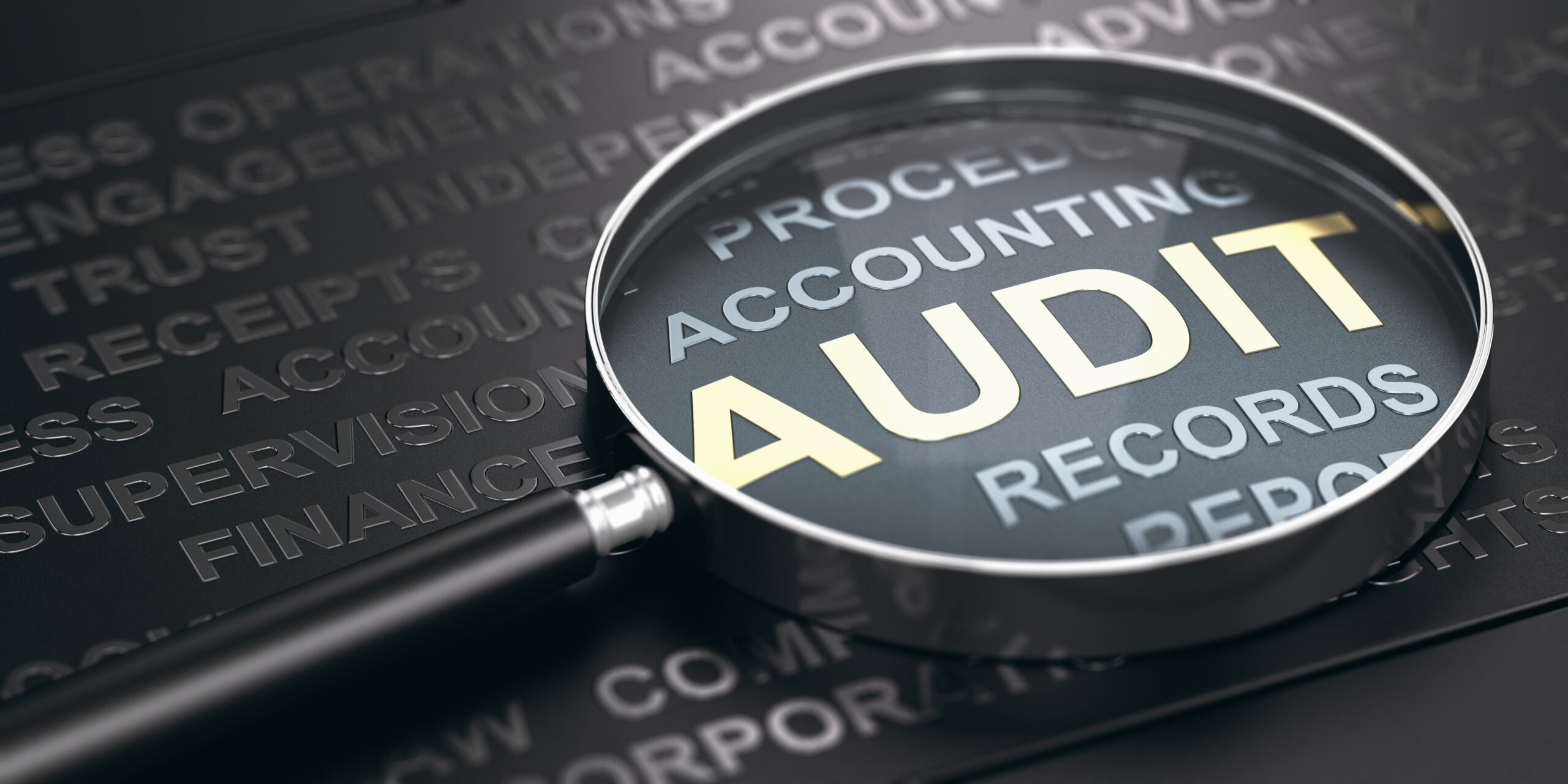In today's data-driven business landscape, organizations rely heavily on analytics to make critical decisions, optimize operations…
Audit Reporting Insurance: Essential Protection for Audit Professionals
Introduction
Audit reporting represents one of the highest-risk activities in professional services, where a single error or omission can result in substantial financial claims. Whether you're an independent auditor, part of an accounting firm, or working within a corporate audit department, the responsibility that comes with providing audit opinions and reports requires comprehensive professional protection.
Audit Reporting Insurance provides specialized coverage designed to protect audit professionals against claims arising from their audit work, including errors in judgment, missed material misstatements, and allegations of professional negligence in audit reporting.
Understanding Audit Reporting Risks
Primary Risk Exposures
Professional Negligence Claims
Audit professionals face significant exposure when clients or third parties allege that audit work fell below professional standards. This can include claims that material misstatements were not detected, inappropriate audit opinions were issued, or audit procedures were inadequate.
Regulatory Action
Professional bodies and regulatory authorities can investigate audit work, potentially leading to disciplinary action, fines, or restrictions on practice. The Financial Reporting Council (FRC) and other regulatory bodies maintain strict oversight of audit quality.
Third-Party Reliance Claims
Banks, investors, and other stakeholders who rely on audit reports may pursue claims if they suffer losses following business failures where audit reports are questioned. These claims can be particularly substantial given the financial stakes involved.
Breach of Professional Standards
Claims can arise from alleged failures to comply with International Standards on Auditing (ISAs), ethical requirements, or other professional standards governing audit work.
Industry-Specific Challenges
Complex Financial Instruments
Modern businesses often involve sophisticated financial instruments and transactions that require specialized audit expertise. Errors in auditing these areas can lead to significant claims.
Going Concern Assessments
Audit opinions on going concern status carry particular risk, especially during economic uncertainty when business failures may be more common.
Related Party Transactions
Auditing related party transactions and ensuring proper disclosure presents ongoing challenges that can result in professional liability claims.
Technology and Data Analytics
The increasing use of technology in audit processes creates new risk areas around data security, system reliability, and the appropriate use of audit analytics.
Core Coverage Areas
Professional Indemnity Protection
Claims Defense Costs
Coverage for legal costs in defending against professional negligence claims, including solicitor fees, expert witness costs, and court expenses.
Damages and Settlements
Protection against financial awards and agreed settlements arising from audit reporting claims.
Regulatory Defense
Coverage for costs associated with defending regulatory investigations and disciplinary proceedings.
Loss of Documents
Protection against claims arising from the loss or destruction of audit working papers and client documents.
Extended Coverage Options
Cyber Liability Protection
Coverage for data breaches, cyber attacks, and technology failures that could compromise audit work or client confidentiality.
Employment Practices Liability
Protection against claims from employees, including wrongful termination, discrimination, and harassment allegations.
Crime Coverage
Protection against employee dishonesty, fraud, and theft that could impact audit work or client relationships.
Business Interruption
Coverage for loss of income following insured events that prevent normal audit operations.
Specialized Audit Sectors
Public Company Audits
Auditing publicly traded companies involves additional risks due to heightened regulatory scrutiny and the potential for significant third-party reliance on audit reports. Coverage must account for the increased exposure associated with public company audit work.
Financial Services Auditing
Auditing banks, insurance companies, and other financial institutions requires specialized knowledge and carries unique risks related to regulatory compliance and complex financial instruments.
Not-for-Profit Auditing
Charity and not-for-profit audits involve specific regulatory requirements and public interest considerations that require appropriate coverage.
Government and Public Sector Auditing
Public sector audit work involves unique risks related to public accountability and regulatory oversight.
Risk Management Best Practices
Quality Control Systems
Implementing robust quality control procedures helps minimize the risk of audit failures and demonstrates professional competence in the event of claims.
Continuing Professional Development
Maintaining current knowledge of auditing standards, regulations, and industry developments is essential for risk management and professional competence.
Client Acceptance and Continuance
Careful evaluation of audit engagements, including client risk assessment and resource requirements, helps avoid high-risk situations.
Documentation Standards
Maintaining comprehensive audit documentation provides crucial evidence of professional competence and compliance with auditing standards.
Claims Prevention Strategies
Engagement Letters
Clear, comprehensive engagement letters that define scope, responsibilities, and limitations help prevent misunderstandings that can lead to claims.
Independence Monitoring
Maintaining and monitoring auditor independence helps prevent conflicts of interest that could compromise audit quality.
Technical Consultation
Establishing procedures for technical consultation on complex audit issues helps ensure appropriate audit approaches and opinions.
Quality Reviews
Regular quality reviews of audit work help identify and address potential issues before they result in claims.
Choosing the Right Coverage
Coverage Limits
Audit professionals should consider coverage limits that reflect the potential scale of claims in their practice areas. Public company auditors typically require higher limits than those auditing smaller private companies.
Retroactive Coverage
Coverage for claims arising from prior work is essential, particularly when changing insurers or starting new practices.
Run-Off Coverage
Protection for claims made after retirement or cessation of practice ensures ongoing protection for past audit work.
Regulatory Coverage
Specific coverage for regulatory investigations and disciplinary proceedings is increasingly important given enhanced regulatory focus on audit quality.
The Claims Process
Immediate Response
When potential claims arise, immediate notification to insurers and professional advisors is crucial for protecting coverage and managing the situation effectively.
Expert Support
Insurers typically provide access to specialist legal and technical experts who understand audit-related claims and can provide appropriate defense strategies.
Settlement Considerations
Professional input on settlement decisions helps balance financial exposure with reputational considerations and ongoing practice requirements.
Learning from Claims
Claims experience provides valuable insights for improving risk management and preventing future issues.
Regulatory Compliance
FRC Requirements
The Financial Reporting Council maintains oversight of audit quality and may require specific insurance arrangements for certain audit work.
Professional Body Requirements
Professional accounting bodies often specify minimum insurance requirements for members engaged in audit work.
International Standards
For firms operating internationally, coverage must consider varying regulatory requirements and legal systems.
Cost Considerations
Premium Factors
Insurance premiums reflect factors including practice size, client types, claims history, and risk management procedures.
Risk-Based Pricing
Insurers increasingly use sophisticated risk assessment models that consider specific practice characteristics and risk exposures.
Group Coverage
Larger firms may benefit from group coverage arrangements that provide economies of scale and comprehensive protection.
Self-Insurance Options
Some larger organizations consider self-insurance or captive insurance arrangements for certain risks.
Future Considerations
Technology Impact
The increasing use of artificial intelligence and data analytics in audit work creates new risk areas that insurance coverage must address.
Regulatory Evolution
Ongoing changes in audit regulation and standards require insurance coverage that can adapt to evolving requirements.
Climate Risk
Growing focus on climate-related financial disclosures creates new audit risks that require appropriate coverage.
ESG Reporting
The expansion of environmental, social, and governance reporting creates additional audit risks and coverage requirements.
Conclusion
Audit Reporting Insurance provides essential protection for audit professionals facing increasing risks and regulatory scrutiny. The complex nature of modern audit work, combined with heightened expectations and potential for substantial claims, makes comprehensive professional indemnity coverage a critical business requirement.
Effective coverage goes beyond basic professional indemnity to include regulatory defense, cyber protection, and specialized coverage for the unique risks of audit work. By combining appropriate insurance coverage with robust risk management practices, audit professionals can protect their practices while maintaining the independence and professional skepticism essential to quality audit work.
The key to effective protection lies in understanding the specific risks of your audit practice, selecting coverage that addresses these exposures, and maintaining the professional standards that form the foundation of audit quality. With the right insurance protection and risk management approach, audit professionals can focus on delivering high-quality audit services while protecting their practices against the inherent risks of this essential professional service.


 0330 127 2333
0330 127 2333
























